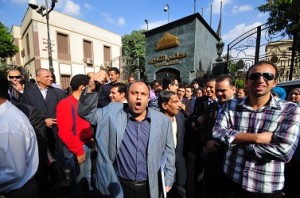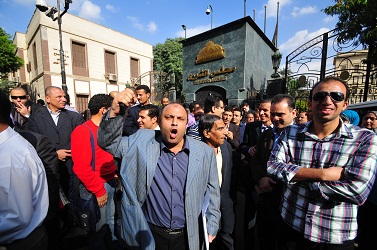
President Mohamed Morsy ratified the list of appointed Shura Council members late on Thursday, but several selected members and parties are unwilling to accept their appointments.
The Shura Council is formed of 270 members, 180 of them are elected directly by the people and 90 are appointed by the president.
The 90 presidential appointees include 75 non-Islamists, according to state news agency MENA.
A media spokesperson for the Shura Council said the requisite presidential decree to appoint the proposed members has not been issued yet.
“Many figures like Ayman Nour and Selim El-Awa who were chosen for appointment had reservations about the concept of appointment; maybe that’s why the decree isn’t issued yet,” he said.
He added that the theory behind the appointments is to compensate for the lack of legal and constitutional experts in the council.
“The appointments aim to balance the council. Especially since it will be responsible for legislation, more political and legal figures are needed,” he said.
He added that he was waiting for the decree to be sent to the council and be published in the official gazette.
The unfinalised list includes representatives from 17 political parties and movements, 12 Coptic Christians and representatives from Al-Azhar.
Sinai tribes, Bedouins, Nubians, artists and athletes are also represented.
The Shura Council will take over the legislative powers, which are now controlled by the president, if the new constitution is approved.
A mini legal committee was formed following the constitutional declaration at the end of November, to hold a national dialogue with different political groups. The last round of dialogue tackled the Shura Council nominations under the auspices of President Mohmed Morsy.
The committee, headed by Vice President Mahmoud Mekki, received Shura Council membership nominations from different parties and civil institutions for.
However, the National Salvation Front refused to send nominations or to participate in the process.
“The 90 nominees are mostly from parties that participated in the national dialogue, many of them were members of the Constituent Assembly,” said Yoursy Al-Azabawy, strategic expert at the Ahram Centre for Political and Strategic Studies.
He added that the Shura Council was used in Mubarak’s era to reward those who were loyal to him, now it is used to reward those who participated in the national dialogue.


